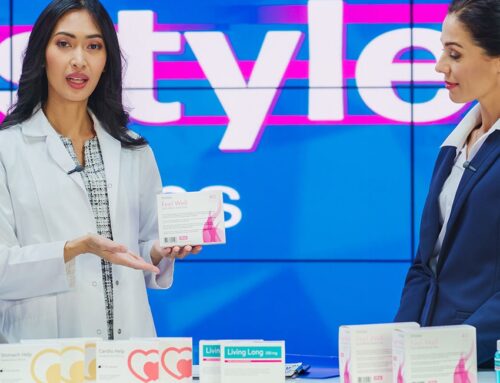What is Pharmaceutical Marketing?
At its essence, pharmaceutical marketing is the strategic approach taken by companies to promote medicinal products to both prescribers and consumers. Meticulously crafted strategies and strict adherence to regulations ensure that key information reaches the right people at the right time. This piece will shed light on purposeful communication, engaging the target audience, and the significance of ethical practices within this essential intersection of healthcare and business.
Key Takeaways
- Pharmaceutical marketing involves promoting products while informing healthcare professionals and patients about new medicines, fostering research, and addressing public health concerns, with strategies crucial for reaching target audiences and promoting health solutions.
- The field has evolved extensively, integrating both traditional methods like visits to doctors and digital strategies such as social media and email marketing, underlining the shift towards digital channels, and necessitating compliance with regulatory scrutiny.
- Successful pharmaceutical marketing relies on a deep understanding of market trends and customer needs, personalized and ethical engagement with healthcare professionals and patients, and use of data analytics to refine strategies and measure success.
Defining Pharmaceutical Marketing
Marketing in the pharmaceutical industry encompasses several key functions:
- Promotion of laboratory brands’ products and services while adhering to both domestic and global regulatory standards.
- Highlighting a product’s advantages.
- Enabling pharmaceutical companies to establish clear channels of communication with healthcare providers, medical experts, and other relevant parties within the health sector.
This marketing extends beyond mere promotion to serve multiple critical roles, including:
- Informing physicians about new drug offerings, their applications, and risk-to-benefit ratios.
- Increasing public awareness of disease prevention, care options, and therapeutic interventions.
- Contributing significantly to enhancing public healthcare outcomes.
- Supporting ongoing research initiatives and development activities.
- Enhancing economic stability within the pharma sector.
Pharmaceutical marketing, also known as pharma marketing, extends far beyond mere product sales. It serves as a cornerstone in advancing public health and promoting overall societal well-being. As such, meticulously designed marketing strategies are indispensable for engaging target audiences effectively and ensuring access to essential health solutions.
Goals and Objectives
In the pharmaceutical industry, adopting a tailored marketing strategy is pivotal for achieving success. By focusing on individual customer needs and fostering strong relationships, marketers in this field can significantly:
- Enhance loyalty
- Establish trust
- Augment customer satisfaction
- Bolster brand image
These aspects are fundamental for the triumph of any brand.
Utilizing market research within pharmaceutical marketing serves as a means to evaluate drug cost-effectiveness while aiming at optimizing value, a key factor for healthcare systems that subsequently leads to an increase in market share. Fundamentally, the objectives of pharmaceutical marketing center around comprehending consumer requirements, maximizing worthiness, and solidifying consumer confidence.
Target Audiences
Healthcare professionals such as doctors, pharmacists, and nurses are the primary focus of pharmaceutical marketing efforts due to their critical role in guiding patients’ treatment choices. To influence these influencers’ prescription practices, a major element of any pharmaceutical marketing strategy is to provide education regarding drug benefits, associated risks, and proper use.
Beyond targeting healthcare providers, pharmaceutical marketers also concentrate on reaching out directly to consumers. Direct-to-consumer marketing is essential for building product recognition and brand loyalty among patients and their caregivers. Communicating with this audience differs from professional interactions, often employing emotional appeal or empathetic messaging strategies that highlight personalized experiences within pharmaceutical advertising.
Evolution of Pharmaceutical Marketing
Pharmaceutical marketing is a dynamic field, constantly adapting to the evolving landscape of technology and consumer behavior. The COVID-19 pandemic accelerated this evolution, prompting the industry to explore new avenues for reaching healthcare professionals and patients.
The rise of digital platforms has revolutionized how pharmaceutical companies connect with their audiences, offering more personalized and targeted approaches. By integrating both traditional and digital marketing strategies, pharmaceutical marketers can maximize their reach and impact. Techniques like optimizing web content, maintaining active blogs, and partnering with specialized marketing agencies are essential for staying relevant and effective in today’s competitive landscape.
The key to success in pharmaceutical marketing lies in embracing innovation while staying true to the core principles of delivering valuable information and building trust with healthcare professionals and patients.
Traditional Marketing Techniques
Pharmaceutical traditional marketing strategies rely on various methods to connect with and influence healthcare professionals. While these methods have evolved over time, they remain vital in conjunction with digital approaches:
- In-person visits to doctors’ offices for product promotion have evolved to incorporate virtual interactions and tele-detailing.
- Providing physicians with drug samples, once a cornerstone, has adapted to include virtual sample distribution and e-sampling programs.
- Establishing connections at industry events like conferences and trade shows now includes virtual conferences and webinars in addition to physical gatherings.
Other methods, such as print advertising in medical publications and distributing informative materials like pamphlets and brochures in medical facilities’ waiting areas and offices, remain effective in complementing digital efforts.
Digital Marketing Transformation
The advent of digital platforms has fundamentally transformed the landscape of pharma marketing strategies. It’s become essential for these strategies to encompass a variety of online channels, such as:
- Corporate websites
- Social networking sites
- Electronic Direct Mail (EDM)
- Digital seminars and workshops
- Online industry gatherings
These channels offer precise targeting capabilities unmatched by traditional mediums. Digital conferences and professional meetings are now essential for expanding reach, enabling pharmaceutical companies to connect with healthcare professionals globally and deliver promotional content on demand.
By embracing advanced digital solutions and prioritizing patient needs, deeper connections with target audiences can be established. The integration of telemedicine and remote monitoring technologies provides valuable insights into patient behaviors, enhancing engagement and refining marketing efforts for pharma brands.
Key Components of a Successful Pharmaceutical Marketing Strategy
Developing a successful marketing strategy for a pharmaceutical company involves comprehensive planning and consideration of several crucial elements. It’s essential to:
- Understand the intended audience thoroughly.
- Keep abreast of evolving market trends.
- Analyze the competitive environment.
- Recognize consumer needs and preferences while adhering to industry regulations.
- Embrace advanced digital marketing approaches.
A thorough assessment of pharmaceutical marketing entails examining market trends, observing customer behaviors, and analyzing competitor tactics to make informed strategic decisions. By identifying their desired position within the marketplace, pharmaceutical companies can develop potent strategies to promote their products effectively.
Crafting distinctive Unique Selling Propositions (USPs) is integral to generating relevant content tailored to meet the needs of target audiences. This not only ensures appropriate messaging but also establishes a strong foothold against competitors. USPs should be honed carefully, as they shape messaging and resonate with consumers.
A rigorous evaluation of the anticipated impact on sales revenue is crucial in developing effective tactics. Generating a strong return on investment depends heavily on whether conceived initiatives translate into tangible growth. Therefore, amalgamating various aspects described above is pivotal in carving out robust strategies and ultimately achieving greater success in the sector.
Market Research and Data Analytics
In pharmaceutical marketing, market research is foundational, involving meticulous data collection and analysis on key aspects such as:
- Market size
- Patient demographics
- Competing companies and products
- Pricing strategies
- Sales trends
This gathered intelligence from market research supports organizations, healthcare providers, and policymakers by providing evidence-based insights that influence decisions across drug development stages as well as refining marketing strategies.
Leveraging data analytics is central to advancing marketing strategies, boosting efficiency, and enhancing return on investment. Pharmaceutical firms are increasingly turning to big data along with predictive analytics to gain deeper insights into consumer behavior patterns and evolving market dynamics. This allows them to adjust their promotional tactics accordingly. Thus, this reliance on a rigorous approach grounded in data underpins effective pharmaceutical marketing strategy execution.
Personalization and Customization
Personalization and customization have emerged as crucial components in the arena of pharmaceutical marketing, moving away from generic strategies. Adapting these marketing strategies to cater specifically to unique patient requirements is now essential. This includes crafting individualized email campaigns and developing web content that directly appeals to specific individuals for a more impactful experience.
Healthcare professionals can benefit from customized virtual events designed for interactive peer-to-peer education, where they participate in personal conversations and group discussions tailored for an enhanced educational experience. Incorporating personalization and customization into experiences specially designed for healthcare providers and patients has become fundamental within pharmaceutical marketing practices.
Regulatory Compliance and Ethical Considerations
Navigating the complex regulatory framework is essential in pharmaceutical marketing. Landmark legislation, such as the 1938 Food, Drug, and Cosmetic Act, along with the 1951 Durham-Humphrey Amendments, has shaped the marketing of pharmaceutical products by emphasizing a physician-driven model for drug distribution. Current regulatory hurdles within pharmaceutical marketing necessitate adherence to clear-cut regulations set forth by governing agencies, which underscore transparency.
Minimizing adverse effects in promotional content is crucial to avoid serious legal repercussions and ethical issues that could undermine consumer confidence in both the product and the provider. When engaging in direct-to-consumer advertising campaigns, pharmaceutical companies must ensure their messaging meets stringent standards of accuracy and educational value. Keeping up-to-date with compliance requisites within the industry is pivotal not only for avoiding legal pitfalls but also for fully realizing effective strategies in marketing their pharmaceutical offerings.
Engaging Healthcare Professionals and Patients
Pharmaceutical marketing is centered around involving both healthcare professionals and patients. Utilizing innovative digital platforms like virtual symposiums and augmented reality applications enhances customer engagement and provides dynamic forums for healthcare professionals, including webinars and specialized virtual spaces for tailored discussions. Medical conferences play a pivotal role as avenues for disseminating information on new products, supported by visually engaging tools like educational posters that boost brand recognition.
Patient-oriented marketing strategies integrate services such as telehealth and remote monitoring systems tailored to address patient needs, improving health outcomes and satisfaction levels. Engaging both providers of care and recipients amplifies the breadth and efficacy of pharmaceutical marketing initiatives.
Educational Events and Webinars
In pharmaceutical marketing, educational events and webinars are pivotal for disseminating information on new medications and treatments to healthcare professionals. These online seminars have emerged as highly effective tools for captivating the interest of industry professionals. They offer healthcare providers up-to-date knowledge on cutting-edge drugs, potentially influencing their prescribing habits. These events also serve as effective means of educating healthcare practitioners about recent pharmacological developments while encouraging professional community interaction.
Direct-to-Consumer Advertising
Direct-to-consumer advertising is a significant aspect of pharmaceutical marketing that has become increasingly prevalent in recent times. Initially met with considerable opposition from medical professionals’ associations, consumer advocates, and even the pharmaceutical industry itself, this approach has gradually gained acceptance. Through direct-to-consumer advertising campaigns, patients are informed about various health conditions and treatment options available to them. This knowledge encourages individuals to actively seek professional healthcare advice.
The Role of Sales Representatives in Pharmaceutical Marketing
Sales representatives act as the main conduit between pharmaceutical companies and healthcare professionals, holding a critical position in forging and sustaining connections to successfully market pharmaceutical products. By offering detailed information about these products, along with samples, sales representatives assist healthcare providers in making choices that benefit patient treatment. This direct interaction by sales reps is a crucial component of the broader strategy employed within pharmaceutical marketing.
Personal Touch and Timely Support
Sales representatives play a vital role in building relationships with healthcare professionals through personalized interactions and timely assistance. Key practices that aid in establishing and nurturing these connections include:
- Direct engagement with healthcare professionals
- Organizing regular meetings to discuss products and address needs
- Keeping healthcare professionals updated on new products and advancements
These strategies are essential for fostering strong bonds and keeping healthcare professionals well-informed.
Adapting to Changing Healthcare Landscapes
Sales representatives are continuously adapting to the dynamic healthcare environment, which is fraught with unique challenges. They undergo training that equips them with the knowledge needed to navigate these complexities and stay relevant.
It is vital for sales representatives to maintain this adaptability so they can proficiently interact with healthcare professionals, catering to their shifting requirements effectively.
Measuring Success in Pharmaceutical Marketing
Evaluating the success of pharmaceutical marketing strategies is crucial for establishing a roadmap for enduring success and assessing the effectiveness of marketing initiatives. Key performance indicators (KPIs) such as operating cash flow, gross profit margin, order fulfillment speed, and inventory turnover provide valuable insights into a company’s financial and operational efficiency.
Consistent monitoring of KPIs included in the marketing plan is essential for assessing success. Refined strategies based on KPI analysis can ensure long-term success in pharmaceutical marketing.
Setting KPIs
Creating concise, clear, and relevant KPIs is vital for assessing the effectiveness of pharmaceutical marketing efforts. KPIs should adhere to SMART criteria — Specific, Measurable, Attainable, Realistic, and Time-bound — to be actionable. Designing KPI dashboards should focus on essential metrics to avoid overwhelming users with excessive data.
Analyzing Data and Refining Strategies
Pharmaceutical companies can enhance marketing strategies by utilizing data analysis to:
- Sharpen effectiveness and increase profitability
- Utilize big data and predictive analytics for insights into consumer actions and market dynamics
- Implement powerful KPI dashboards aligning key indicators with desired business results, focusing on aspects like revenue growth and patient health outcomes
Dissecting data and refining marketing methods are essential for maximizing promotional efficacy and ensuring sustained prosperity.
The Future of Pharmaceutical Marketing
As the healthcare industry undergoes transformation, pharmaceutical marketing is poised to embrace new trends and leverage technological advancements. Key strategies for the future include:
- Personalization in medicine alongside therapies tailored specifically for individuals.
- Utilizing digital platforms along with strategic online advertising approaches.
- Implementing artificial intelligence coupled with machine learning techniques for more refined data analysis and informed decision-making processes.
- Employing virtual reality together with augmented reality technologies for creating comprehensive healthcare experiences that engage patients on a deeper level.
Personalized Medicine and Targeted Therapies
In the dawn of personalized medicine, pharma companies are gearing up to evolve their pharmaceutical marketing strategies. These adaptations are crucial for effectively communicating about new advancements in therapies, diagnostics, and tailored treatment options within this sector.
Integration of Novel Technologies
Pharmaceutical marketing is evolving with the integration of advanced technologies like AI and VR, enhancing targeting precision, content customization, and engagement levels for better health outcomes.
Virtual reality provides engaging educational experiences, breaking down complex medical concepts and offering insights for healthcare practitioners.
Summary
Pharmaceutical marketing serves as a crucial bridge, connecting research breakthroughs, healthcare providers, and patient communities to ensure the effective delivery of medical treatments. Evolving from traditional methods to embrace modern digital mediums, this field emphasizes thorough market analysis, personalized efforts, adaptability, and compliance with regulatory standards, while integrating cutting-edge technology. Looking ahead, pharmaceutical marketing is poised to become even more tailored and driven by innovative technology.









